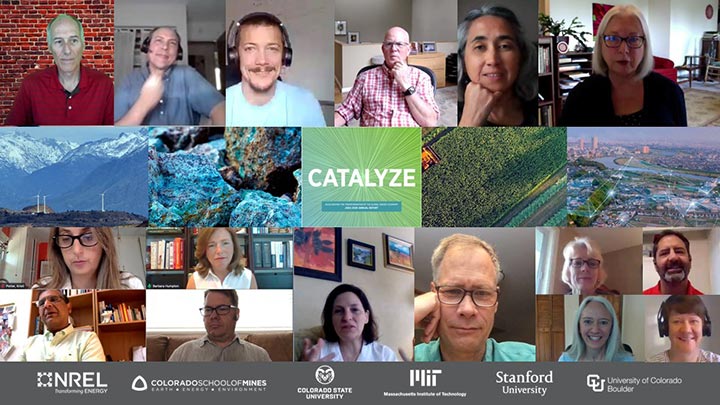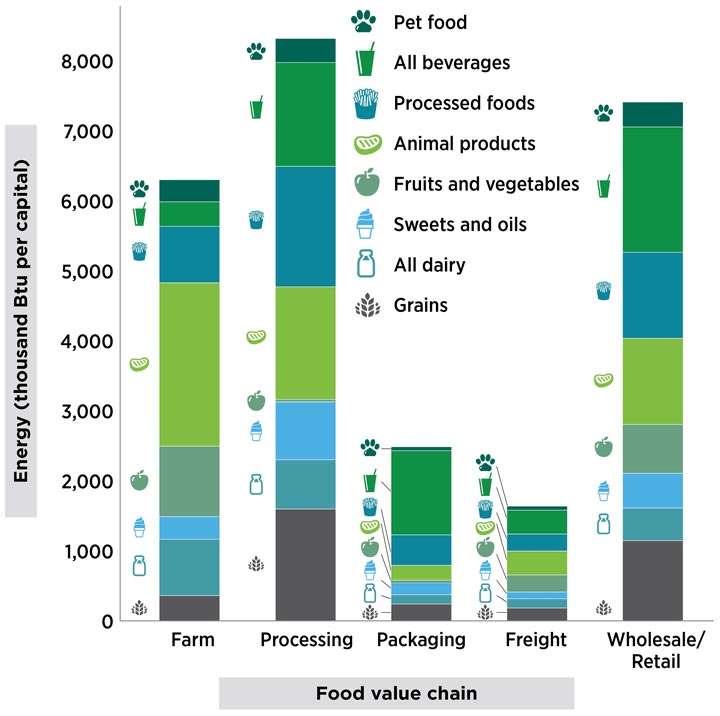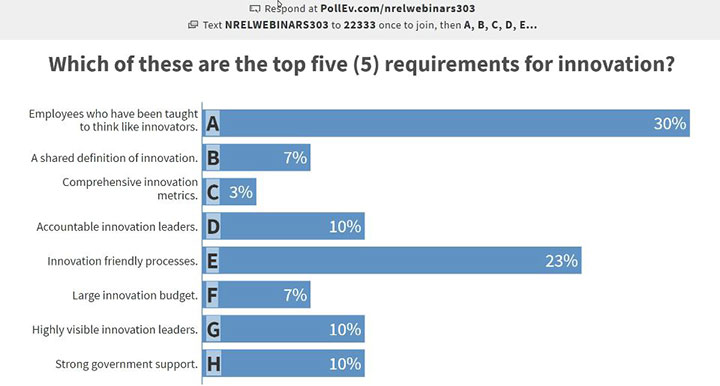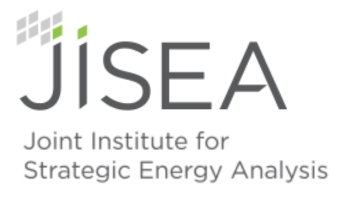JISEA 10th Annual (Virtual) Meeting: Sustainability, Big Data, Business Systems

JISEA annual meeting attendees were happy to see familiar and new faces. JISEA successfully shifted the meeting to a virtual format including real-time polling and Q&As.
August 14, 2020—The Joint Institute for Strategic Energy Analysis (JISEA) hosted its 10th annual meeting with a new format—one virtual session every morning over two weeks. “We wanted to have an interactive and thought-provoking session to start the day for our JISEA friends and colleagues,” said Jill Engel-Cox, JISEA Director.
Each morning, panelists sipped coffee from a JISEA mug; discussed the biggest questions in the clean energy transition; and engaged in vibrant conversations, chats, and polls on video. Presenters included current and former JISEA interns, JISEA analysts, partner institutions, and industry experts.
Sustainability in a Changing World
Week one of the annual meeting focused on making energy systems transformation more sustainable. Each session focused on a different sector or region that relies on energy and can support the clean energy transition.
One session focused on food systems, which are becoming more high-tech and require new energy types from farms to factories. Executives from PepsiCo, Bond Pet Foods, and the American Council for an Energy-Efficient Economy spoke about current projects and evolving opportunities at their organizations. "Our biggest need is finding or developing technology that can help meet energy and climate goals while providing an acceptable return on investment," said Joe Gold, Manufacturing Sustainability Director at Frito-Lay North America, which is part of PepsiCo.
PepsiCo has embraced renewable electricity in its operations around the world by transitioning to cleaner sources of energy, conserving water, using electric fleet vehicles, and more. PepsiCo reduced absolute greenhouse gas emissions by 6% across the value chain in 2019—on target for its goal of 20% by 2030. PepsiCo is currently exploring thermal process and waste heat capture for producing and packaging snacks.

Many products across the food value chain have high energy demands.
Transitions in food systems also impact rural and urban economies and social systems—the topic of another session featuring a candid conversation between Former U.S. Secretary of Agriculture Tom Vilsack and Former Colorado Governor and JISEA Advisory Council President Bill Ritter.
Click to listen to a conversation about rural economies and social systems in the clean energy transition. Text version
The final session of week one focused on sustainable extraction of materials, traceable supply chains, clean manufacturing, and recovery at the end of life. It included industry experts and JISEA analysts specializing in the circular economy of materials, who discussed challenges and opportunities at each part of the global supply chain. For example, materials tracking is an ongoing challenge—blockchain technology, supplier engagement, and materials flow analysis could be possible solutions.
Big Data and Business Systems
Week two of the annual meeting shifted to the ongoing data and business revolution that enables the energy transition. Each session explored complex data analysis and decision-making for systems innovations.
One session focused on machine learning for energy solutions and included presenters from academia, research, software, and manufacturing. They shared practical applications of machine learning and bounced ideas and questions off one another.
"The machine learning and physical science communities need to work together to inform physically meaningful and accurate machine learning models for power system engineering," said Vipin Kumar, professor at the University of Minnesota.

An example (left) of how machine learning is used at the National Renewable Energy Laboratory (NREL). The model uses machine learning to enhance climate data up to 50 times. Experts in machine learning (right) discussed how big data and machine learning can be used to optimize electric vehicles, microgrids, and more.
Another session examined financial risks and opportunities of decarbonization. Executives from Baker Hughes and Xcel Energy Colorado, along with the JISEA Executive-in-Residence, broke down what is currently being done at companies and how to implement better decarbonization strategies. "Every person has to be a leader in a company to achieve decarbonization," said Allyson Anderson Book from Baker Hughes.
During this age of technological disruption, companies must evolve to stay relevant. A session featuring Deb Frodl, Board Director of the Renewable Energy Group and Former Chief Experience Officer at General Electric, explored high-stakes decision-making in these disruptive times.
"The pace of technology change is accelerating," Frodl said. "No company is immune to creative destruction or innovation. A well-defined, systemic process is necessary to determine which innovations to watch and adopt."

Throughout the annual meeting, presenters used live polling to engage with attendees and spark conversation. During this session about corporate decision-making for systems innovation and disruption, attendees voted innovation-minded employees as the most important requirement for business innovation.
The annual meeting completed with virtual topic tables, including breakout discussions with JISEA experts in specific research areas: Paul Schwabe for distributed energy resources; Mark Ruth for electrons to molecules, hydrogen, and carbon utilization; Garvin Heath for the circular economy of materials; Jordan Cox for flexible generation technologies and integration; Tisi Igogo for sustainable energy for food systems; and Brian Sergi for power lines and gas pipelines integration.
"While nothing can replace meeting in person, the panelists and presenters shared amazing ideas, and attendees were excited to engage, which made it a successful annual meeting," said Engel-Cox. Learn more about how JISEA is accelerating the transformation of the global energy economy in the JISEA 2020 annual report.
Presentations
Technical Poster Sessions and Experiences as JISEA Interns
Tisi Igogo (Colorado School of Mines)
Josue Prado (University of Nebraska-Lincoln)
Christina Simeone (Colorado School of Mines)
Ben McKenney (Colorado State University)
Energy for Food Systems
Darlene Steward (JISEA/NREL)
Pernilla Audibert (Bond Pet Foods)
Joe Gold (PepsiCo/Frito-Lay)
Jennifer Thorne Amann (American Council for an Energy-Efficient Economy)
Keynote Discussion: Rural Economies and Social Systems
Circular Economy of Materials and Global Supply Chains
Travis Lowder (JISEA/NREL)
Fazleena Badurdeen (University of Kentucky)
Rod Eggert (Colorado School of Mines)
Sarah Ryker (U.S. Geological Survey)
Machine Learning and Artificial Intelligence for Energy Solutions
Kristi Potter (JISEA/NREL)
Barbara Humpton (Siemens USA)
Vipin Kumar (University of Minnesota)
Solomon White (Blinker Inc.)
Financial Risks and Opportunities of Decarbonization
Mark Ruth (JISEA/NREL)
Allyson Anderson Book (Baker Hughes)
Alice Jackson (Xcel Energy Colorado)
Steven Freilich (JISEA Executive-in-Residence)
Corporate Decision Making for Systems Innovation and Disruption
Deb Frodl (Renewable Energy Group)
Back to JISEA News >
